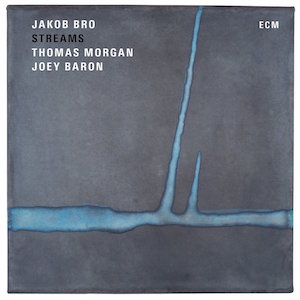Label: ECM Records, 2018
Personnel - Trygve Seim: tenor and soprano saxophones; Kristjan Randalu: piano; Mats Eilertsen: double bass; Markku Ounaskari: drums.
Norwegian reed player Trygve Seim puts a new quartet together with Kristian Randalu on piano, Mats Eilertsen on bass, and Markku Ounaskari on drums. Most of the material on Helsinki Songs, his eighth album as a leader/co-leader for the ECM label, was written in the capital of Finland, conveying a lyrical sentiment that gravitates toward the contemplative. Throughout the 11 originals, autumnal and wintry tones are combined in gracious perfection.
The crystalline opener, “Sol’s Song”, emulates ravishing landscapes that take over our imagination thanks to the efficacious integration of relaxed melodies, simple pop-derived harmony, and a velvety rhythm, in a replication of Jan Garbarek’s space/time aesthetic.
Sweetly waltzing at its core, “Helsinki Song” is another idyllic trip to a forlorn, untouched piece of nature with no peaks nor valleys. Eilertsen never abandons completely the rhythmic figure of his bass ostinato, working together with the disciplined harmonic progressions of the piano to sustain the lethargic unison phrasing by Seim and Randalu. The Estonian pianist was emotionally catchy in his inventive improvisation.
Unfolding like Eastern laments, “New Beginning” and “Sorrow March” show deep spiritual intention. The former develops from a static course of action, created by low-toned pedal suspensions and effective mallet drumming technique, to an unclouded ballad; the latter, as the name suggests, is a melancholic meditation sparked off by Ounaskari’s amiable snare gnarls and cymbal colors. In turn, the pastoral reverie in “Katya’s Dream” took inspiration from Stravinsky.
You won’t find the quartet only creating feathery moments of pure reflection like on “Ciaconna Per Embrik” and “Birthday Song (For Mats Eilertsen)” - nostalgically penned for the bassist’s 40th anniversary, but also ensuring bolder adventures while stretching musical boundaries like on “Randalusian Folk Song”, a piece driven by beautiful drum attacks and depth of groove, and the surprising “Yes Please Both”, a short Ornette-inspired composition that boasts a malleable foundation through expressively plucked bass statements and responsive drumming. A glorious ascendant movement from Seim produces a great point of entrance while Randalu supplements through audacious swirls that burn with melodic engagement.
Stimulating in its quietness and hauntingly poignant in its textures, Helsinki Songs favors slow-drag tempos and embraces a memorably dusky lyricism, exposing an attractive anti-climax nature. It’s an endearing work by Trygve Seim, who definitely deserves wider attention.
Grade B+
Favorite Tracks:
03 - New Beginning ► 06 - Sorrow March ► 08 - Randalusian Folk Song










